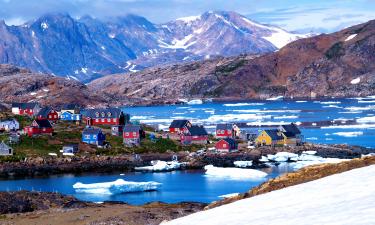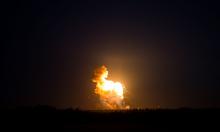Russian model of capitalism
Valeriya Sycheva interviews Egor Gaidar and Sergey Glaziev
On December, 7 is the date of the elections for Russian Parliament - State Duma. The closer this day is the more arguments about the future of private property in Russia arise. There are proponents of the idea “taking the property away and sharing between people”. In a course of time, the communist ideas will probably stop attracting even the most radical politicians. But Russian elite is still thinking which model of capitalism should chosen for the country: liberal or state capitalism. The former members of the first post-Soviet Russian government – economists Egor Gaidar and Sergei Glaziev – are opponents on the issue of Russian economy development.
gor Gaidar: “The main threat for Russia’s economic safety – the passion to reconsider and change the private property ownership”.
- Academician Aganbekyan said that the Swedish model of capitalism better suits Russia. The problem is there are very few Swedish in our country. The government where you were Prime-Minister in 1992 saw the economic progress in liberal capitalism models and voted for unlimited free market economy. Have you changed your opinion since that time?
- I have absolutely the same opinion. We made some mistakes at the beginning of the reforms, and all of them resulted from the failure to follow liberal economy principles. We had to orient ourselves the global economy models and import the institutions of market economy to Russia.
- But you could import European models of economy regulated by the state and socially-oriented...
- This is true. But all such models request well-established democratic system and the government having hundreds years of experience of successful work and is able to cope with complicated issues. There should be the guarantee that, let’s say, a sanitary inspector will not come to your office to demand a bribe, threatening to close down your company. Such a situation is impossible in Sweden, but in our country corruption of officials was a customary thing long ago, even in 17th century. The standards of the developed democratic societies will produce different results if applied to Russia. We need not Swedish and French, but our own ideas, adjusted to Russian bureaucracy. We have been working on elaborating such ideas for the last 3 – 4 years.
- What is your estimation of the results of the privatization in Russia?
- They are bad, but it is a dangerous idea to reconsider these results and conduct re-privatization. No post-Socialist country is satisfied with its privatization. This task has no solution – legitimate private property arises only after centuries of private ownership traditions. For instance, I like the way the property in Hungary was privatized. When I was in Bagdad with former Head of Hungarian Central Bank Peter Bode (whom I know very well), I told him about this. He replied that he blieves the privatization was conducted very badly. In fact, they had normal privatization – its process was open and public, the shares were bought for money, they had no vouchers and deposit auction like in Russia. Most of the property was bought by foreigners. Hungarians are extremely dissatisfied with the results of their privatization, alongside with Estonians, Latvijas, Lithuanians, Polish and the people of other post-Socialist countries. The Chinese are facing the problem of dealing with the state sector they established in 50s and 60s mainly for the enterprises of the Northern China. They asked me for advice. I said this issue has no economic solution and I can advise only one thing: if Chinese government decides to start privatization process, the most hated man should be appointed to be in charge of it...
- There are hot arguments about implementing additional taxation for the companies extracting natural resources, namely natural rent...
- In recent years we made decisions which increased the budget revenues from natural rent. In 1995 – 1999 the majority of the State Duma deputies were communists, and at that time the total sum of the rent revenues was 5 billion dollars smaller than today. Totally, taxes and excise-duties from natural resources extraction constituted about 1.2 per cent of GDP. Аfter being reformedby us, they constitute about 2.5 per cent of GDP. Is it possible to increase the taxes more? This year we conducted a research based on the information of the oil companies audit, and came to the conclusion that it is possible. The additional 3 – 4 billion dollars can be added to the existing taxes. We submitted our calculations and proposals to the Kremlin.
The main task is to safeguard the “hen laying gold eggs”. At the end of the period of Soviet leader Brezhnev rule, prices for oil were several times bigger than today (comparing the money purchasing ability of today and that period). The state directed its oil revenues to the military, agriculture, solving its financial problems, but not to the oil industry. Lack of finance resulted in reducing the amount of oil-drilling. As a result, the whole economic system depended on oil rent, collapsed. Nowadays we hear proposals to construct the oil rent economy again. I don’t think we should make the same mistake for the second time.
- Is it necessary to reduce taxes in Russia?
- Yes. But for this we should solve the problem of state expenses. We exhausted the reserves we could find by improving the taxation system without reducing the state expenses. Now we have to answer the question: how well do we spend the state budget money? There is no reasonable answer. We don’t know what kind of services we buy for the state and society, whether we need them and if they are effective. We approached the key agenda for the nearest future.
- In your opinion, what is the main threat for the economic safety of Russia?
- The main threat is the passion to reconsider and change the private property ownership. Probably, the passion for reconsidering the ownership is the main problem of Russia in 19th and 20th centuries. It caused revolutions in 1905 and 1917 годах, and dispossession of the village rich people in 1929.
In addition, we want Russian people to begin investing in their country’s economy, otherwise there will be no economy growth. To achieve this, there should be solid guarantees of safety for the money invested by people. At the end of 20s the following anecdote was popular. A man was asked: "Why don’t you invest money in the Soviet banks? The state guarantees the safety of this money." The man replied: "Does the state guarantee the safety of the investor as well?"
 Sergei Glaziev: “Privatization in Russia caused antisocial economic model. The privatization results can easily be corrected”.
Sergei Glaziev: “Privatization in Russia caused antisocial economic model. The privatization results can easily be corrected”.
In your opinion, what model of capitalism was constructed during the years of reform in Russia?
- The ten years of the reformers’ rule greatly damaged the country. We found ourselves amidst Barbarian methods of capital accumulating by robbing the national wealth, fierce exploitation of people, lies and criminal orgy in economics and politics. This kind of economy is doomed for self-destruction.
- Then, what market model is better for Russia ?
- If we want to be masters of our own lives, we should not automatically copy other countries models. Social and economic system of any country has both the universal institutions of modern economy and its own ones constructed in a course of history. Nowadays all developed countries have socially-oriented market economy having mechanism of support for innovations, allocation of a significant part of the state budget to science, education, perspective directions of economic development. I can single out such unique peculiarities of Russia as the principles of social justice, the priority of spiritual over material, collectivism and social responsibility.
The best model for Russia should be based on the universal system of socially-oriented market economy with the state as the leading subject of the economy development. At the same time this model should include such specific mechanisms of social partnership and social responsibility, as equalizing profits. In fact, these peculiarities are fixed in Article 7 of the Constitution of the Russian Federation: "Russian federation is a social state, its policy is directed at establishing the conditions for well-being and free development of a person".
- Your commercial demonstrates that you intend to “eat” oligarchs. One can think, in the sauce of changing the results of privatization?
- Privatization in Russia became the main reason of the state degradation and its antisocial economic model. The privatization results can easily be corrected by the principle of increasing the owner’s responsibility to the society for the effectiveness of his/her use of the property and commercial activity. State ownership should be preserved for natural resources, main systems of energetic, transport, information and social infrastructures, the chief military enterprises, financial sphere, producing alcohol.
It is also necessary to used mixed forms of ownership in the spheres of economy having high concentration of monopolies. The state should participate in these spheres. Besides, legal and organizational conditions should be arranged for establishing social partnership in the companies of all types.
Law should become the base for the ownership regulation. All the shadow deals on the state property privatization should be investigated, and the court should cancel all illegal decisions with recovering the money the state budget lost because of these deals. The deals on the state property privatization where the owner broke his/her obligations, should be cancelled. The property purchased legally and used effectively should be protected by the state laws.
- The taxation system should be changed – the bulk of taxation should be transferred from industries to rent revenues. Otherwise, the development of the economy is impossible: taxation should not oppress industry growth, taxes should stimulate it. Besides, the system of revenues taxation should not contradict the norms of social justice.
Our country has the unique taxation system: everybody pays the same percentage of income tax (13 per cent).Its percentage does not depend on the size of a person’s profit, whether it is 2 million dollars or 2 thousand roubles. Most Russian pay higher income tax than the citizens of other countries having the same revenues, even considering relatively low prices for some goods in Russia.
The taxation of superrich people reduced three times after the reform conducted by the government and the Duma pro-government deputies having the majority of votes. Taxes for the poor increased from 12 to 13 per cent, income tax reducing for the military has been cancelled. Besides, the new system of social tax was implemented. It is reduced as a person’s profit is higher. No country in the world has this. There is a standard practice: the rich pay more, the poor pay little. The countries our reformers accept as models have the system of increasing taxes as a person’s profit is higher. In the USA the size of the tax is from 15 to 33 per cent depending on the profit, in Germany - from 25,9 tо 53 per cent, in great Britain - from 25 to 40 per cent. Every country has the minimum level of income not subjected to taxation and tax discounts and benefits for some groups of people. For example, every other family in France pays no taxes: taxation percentage there is from 0 to 56 per cent for different groups of people.
The taxation of small-sized businesses is another problem: high taxes doesn’t allow to develop the business. We were able to initiate the decision of the double taxation canceling and establish the simplified taxation system. However, the taxes are still high. We also think, the companies expenses for the industry development should not be considered as profit and not subjected to taxation.
- In your opinion, what is the main threat for the economic safety of Russia?
- Complete degradation of its main industries. The industrial base is 55 per cent worn out, machines and equipment are 70 per cent worn out. Profitability of the processing industries working for Russian market is about 6 per cent. Such an outcome makes developing industry impossible: it is not profitable to apply for credits, meanwhile the companies have the lack of finance.
"Itogi"
- Is it necessary to reduce taxes in Russia?Subscribe to Pravda.Ru Telegram channel, Facebook, RSS!





